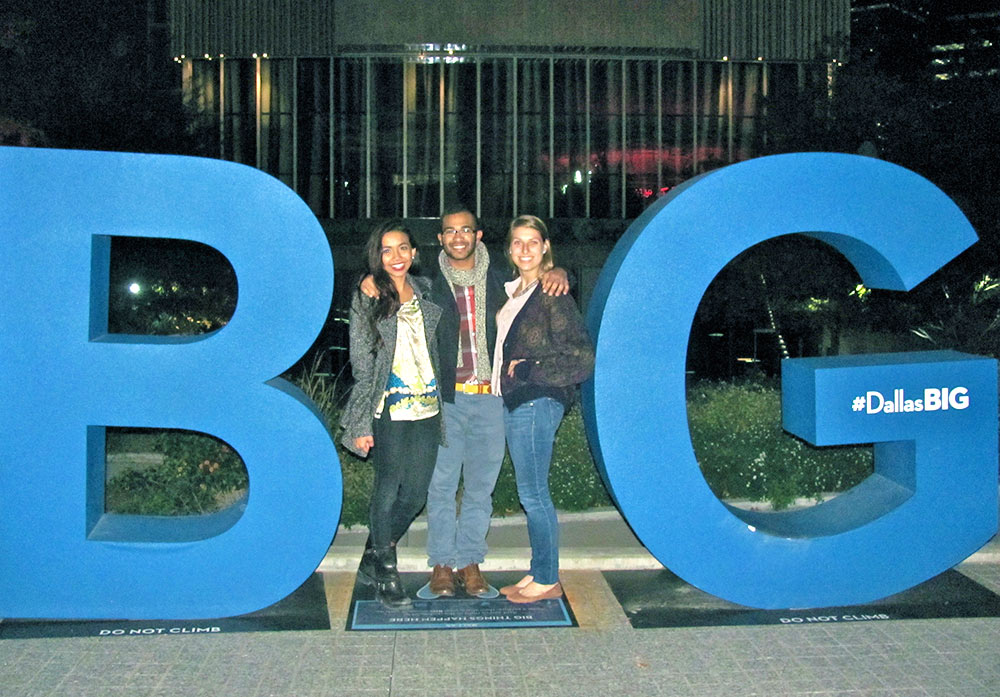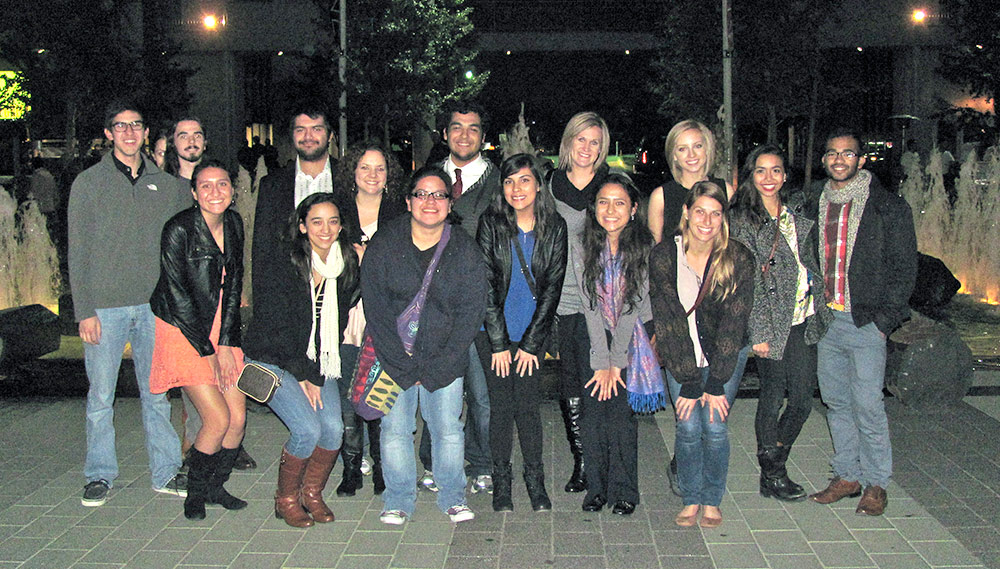
Catalina Lizarraga, Marcos Pelaez and Madison Tomasek posed with one of the DallasBIG campaign's B&G displays, which can be found throughout Dallas, during a Cultural Scholars event in the Dallas' Arts District.
Biology sophomore Mario Lozano recalls working a summer job in Fort Worth, and asking his co-workers if their kids were going to college. Most said they couldn’t afford it.
“I was shocked. A lot of Hispanics don’t know that there’s financial help, and that kills me,” Lozano said. Lozano is a recipient of the National Hispanic Recognition Scholarship and is an Academic Excellence Scholarship (AES) Cultural Scholar at UT Dallas.
The Office of Undergraduate Education established the National Hispanic Recognition and National Achievement Scholarship awards to attract a greater number of bright, underrepresented minorities to UT Dallas.
“Only in our second year, we have already recognized the benefits of these efforts in the form of engaged and successful scholars from diverse backgrounds," said Courtney Brecheen, assistant dean in the Office of Undergraduate Education. “These students have worked by our side to create the AES Cultural Scholars program to formalize the network of support and opportunities available to them and future scholars.”
UT Dallas has expanded the number of its Cultural Scholars to 70, up from 40 its inaugural year. Sixty-three are Hispanic and seven are African-American.

Student leaders organize Cultural Scholars programs, including a fall meet-and greet dinner, a movie night, a field trip to the Dallas Museum of Art and dinner in the Arts District.
The scholars are recipients of AES awards of up to full tuition and a cash stipend each year depending on their recognition in the National Hispanic Recognition Program by the College Board or the National Achievement Scholar program of the National Merit Scholarship Corporation, standardized test scores and high school class ranking.
Cultural Scholars also participate in programs throughout the year that give underrepresented minority scholarship students a sense of belonging, said Sarah Stuart, AES program coordinator.
“To be a happy student on any campus is to be involved. We just want to provide an avenue for students to meet each other and us. We can help make the campus feel much smaller for them, to feel like home,” said Stuart.
Four student leaders organize programs for the Cultural Scholars, which have included a meet-and greet dinner at the beginning of fall semester, a movie night in October, a field trip to the Dallas Museum of Art and dinner in the Arts District in November.
“To be a happy student on any campus is to be involved. We just want to provide an avenue for students to meet each other and us. We can help make the campus feel much smaller for them, to feel like home.”
Sarah Stuart,
AES program coordinator
Alisa Pena, a biology sophomore, is on the leadership committee.
As a freshman student last year living in the Residence Hall, Pena said there weren’t any other Hispanic students on her floor. Getting involved as an Orientation Team Member and helping plan Cultural Scholars events has helped her feel more plugged in.
“The Office of Undergraduate Education is so open to any way we need help,” Pena said. “They make you feel like someone’s looking out for you.”
Lozano, who wants to become a medical doctor, said he chose UT Dallas because of the scholarship help and the opportunity to do research as an undergraduate.
He’s glad that the University has established the Cultural Scholar program, and would like to see more students take advantage of scholarship help and peer support.
“It’s just a different connection when you see your own ethnic group represented on campus,” he said.